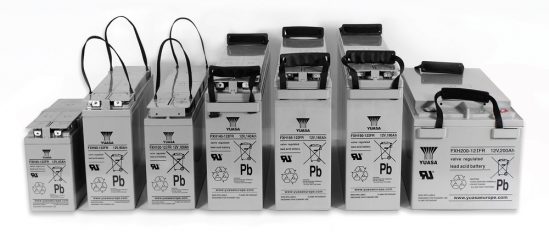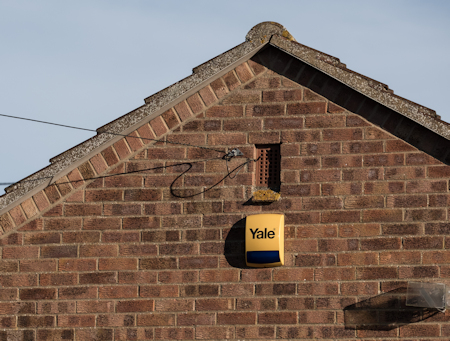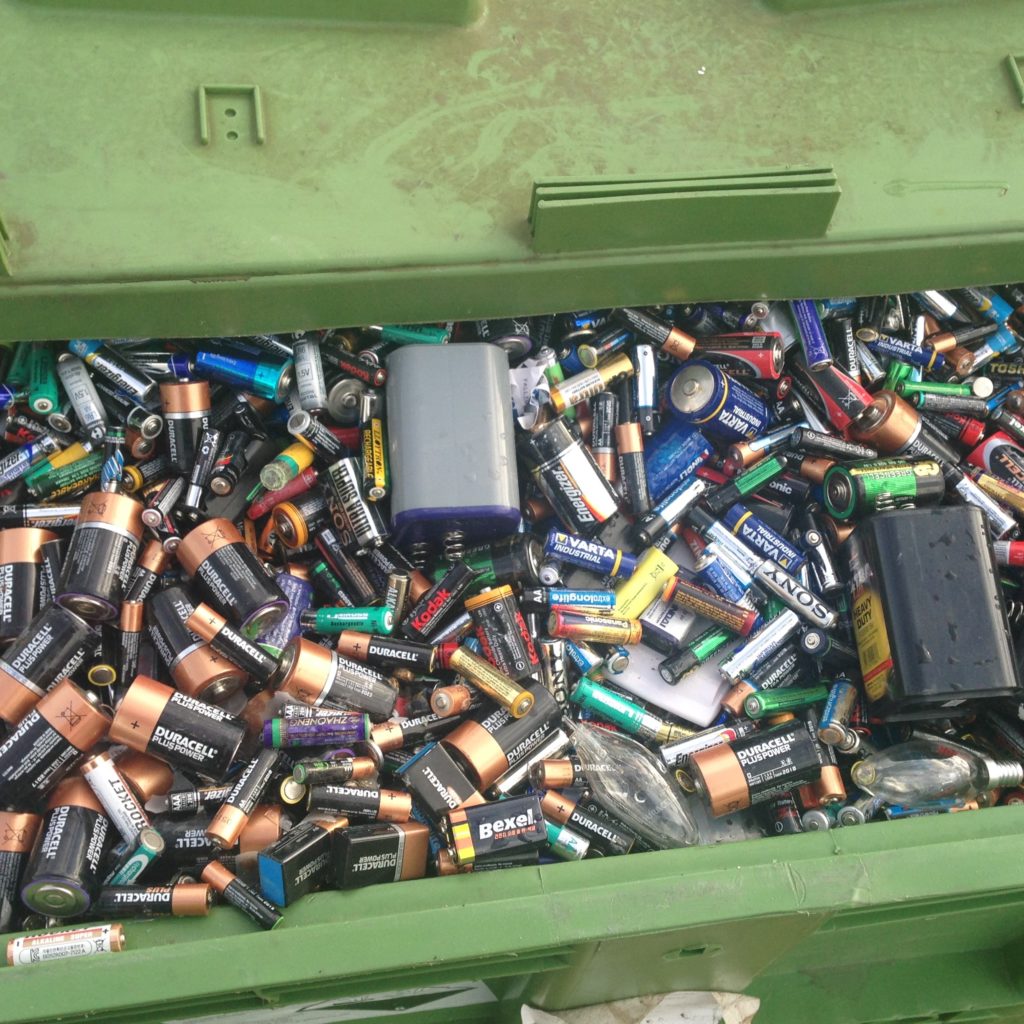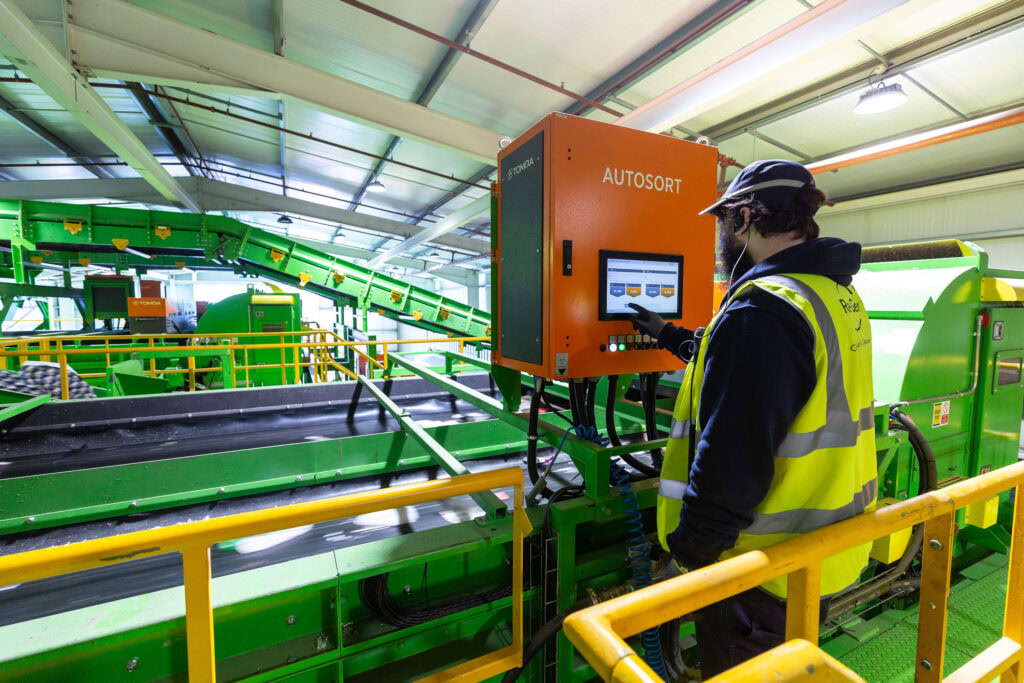The government has revised its joint guidance on portable batteries in a bid to address the issues surrounding incorrect classification, particularly in relation to lead-acid batteries.
While the legislation remains unchanged, the updated guidance – published by Defra, the Environment Agency, and the Office for Product Safety and Standards – means that some producers who previously reported certain batteries as industrial may now need to report them as portable.
At a glance
- Revised guidance published in August classes a sealed battery weighing 4kg or less which is not an automotive or industrial battery as portable
- Large producers of portable batteries are required to join a battery compliance scheme and contribute to the costs of meeting the 45% collection target
- Experts have regularly expressed concerns about the “implausibly high” collection rate of portable lead-acid batteries compared to the volumes placed on the market, displacing non-lead batteries to meet targets
- Compliance schemes hope the revised guidance could lead to an increase in the weight of portable lead-acid batteries reported as being placed on the market in 2022
Large producers of portable batteries – those who place more than one tonne of portable batteries on to the market a year – are required to join a battery compliance scheme and contribute to the costs of meeting the 45% collection target.
Published on 31 August, the guidance classes a sealed battery weighing 4kg or less which is not an automotive or industrial battery as portable, meaning many lead-acid batteries are in scope.
A spokesperson for Defra told letsrecycle.com the long-existing guidance on the classification of industrial and automotive batteries was revised to provide “additional clarity”.
The government department paid particular attention to what is considered a “sealed” battery and those batteries designed “exclusively” for industrial or professional use, the spokesperson said, both of which can be important considerations for determining whether a battery is portable or industrial.
Portable batteries
Since 2016, Defra has classed any battery weighing more than 4kg as industrial or automotive (see letsrecycle.com story).

In the revised guidance, sealed batteries weighing 4kg or less may still be classed as industrial if they are designed exclusively for professional or industrial use. To classify a battery weighing 4kg or less as being designed exclusively for professional or industrial use, producers must provide evidence.
The guidance also states that sealed batteries containing a one-way valve safety mechanism and weighing 4kg or less should be classed as portable.
‘Implausibly high’
The revised guidance could result in a significant increase in the weight of portable lead-acid batteries reported as being placed on the market in 2022. This would in turn result in increased producer obligations and collection requirements.

One of the oldest types of rechargeable batteries in the world, distinctive cuboid portable lead-acid batteries are used in applications such as fire alarms, security systems, and children’s toys.

Concerns have been expressed regularly about the “implausibly high” collection rate of portable lead-acid batteries in the past decade (see letsrecycle.com story).
According to figures published on the National Packaging Waste Database (NPWD), just 1,368 tonnes of portable lead-acid batteries were placed on the UK market in 2020, while 11,471 tonnes were recycled (see letsrecycle.com story).
The data also shows that 39,498 tonnes of non-lead-acid portable batteries were placed on the market, while only 6,257 tonnes were recycled, highlighting the inflated significance of lead-acid evidence.
Environmental objectives
The British and Irish Portable Battery Association (BIPBA) is the trade association for the portable battery industry for the UK and Ireland. Its current members include Panasonic, Duracell, Energizer, Sony, GP Batteries, and Varta.
Developing a greater understanding of where, how and why batteries are collected in the first place will provide a basis for more effective interventions to increase recycling rates
– BIPBA spokesperson
BIPBA told letsrecycle.com it was “clear” that the current collection and recycling system for batteries in the UK was not only “no longer fit for purpose” but was also “undermining the environmental objectives it was meant to deliver in the first place”.
Defra is to launch a consultation on the UK’s waste battery regulations in 2022.
A BIPBA spokesperson said: “The review of the waste batteries regulations currently underway is a significant opportunity to address that and deliver more meaningful solutions that drive greater circularity in the long term.
“Addressing the imbalance between lead acid batteries placed on the market and collected for recycling is a necessary first step in the short term but also needs to be part of an overall holistic approach to improving the UK’s environmental performance in the long term.
“Developing a greater understanding of where, how and why batteries are collected in the first place will provide a basis for more effective interventions to increase recycling rates based on the realities of the UK market.”
BIPBA said it was working with the government to help it develop that understanding.
Consequences
Since the clarification of the regulations, the public register on the NPWD suggests no additional lead producers have declared their obligation by joining a compliance scheme.

The WasteCare Group, operators of the BatteryBack battery compliance scheme, estimates that at least 15,000 tonnes of small lead acid batteries weighing less than 4kg are placed on the market each year. The company says that only 1,500 tonnes are declared by producers.
Peter Hunt, the WasteCare Group’s chairman, said: “The consequences of whether small lead batteries are considered sealed or not could not have been foreseen by those drafting the Waste Batteries and Accumulator Regulations back in 2009.
“Twelve years on, thousands of tonnes of non-industrial lead batteries weighing less than 4kg have all but displaced non-lead batteries to meet the 45% portable battery recycling targets.
“The lead batteries were already being recycled for their lead value long before the regulations came into effect, back.
“The result is that the UK has since failed to meet the intended environmental intentions of the regulations, leaving us languishing way behind our European neighbours.”
‘Debacle’
Mr Hunt also said “vast quantities” of non-lead portable batteries were being stored, displaced by unobligated lead batteries. As a result, he said, the UK is currently collecting just 22% of the portable batteries reported as placed on the market.
Without corrective action now we can only see the situation getting much worse over the next few years
– Peter Hunt, chairman of the WasteCare Group
Mr Hunt added: “With the recycling target expected to rise to 65% by 2025 and the forthcoming introduction of modulated fees, we are soon to be hit by a storm with little time to prepare.
“This debacle is estimated to be costing industry and consumers over £30 million a year. Without corrective action now we can only see the situation getting much worse over the next few years.”
Recycling
Letsrecycle.com contacted battery producers Panasonic UK & Ireland, Sony, GP Batteries, Varta, Energizer UK, and Duracell Batteries UK for comment.
In full accounts submitted for 2020, Duracell UK Ltd noted producers were subject to numerous laws, regulations and policies covering environmental aspects related to battery recycling.
In a strategic report signed by finance director Edward Ryder and managing director Apostolos Piaras, Duracell said: “Recycling obligations present a significant cost to the Company therefore any changes in the compliance requirements or rates can have an adverse impact on our cost of goods.
“We actively participate with governing bodies and work closely with our Recycling Scheme with the aim to improve the effectiveness of battery collection and drive higher recycling rates.
“We are fully committed in helping the industry achieve its recycling targets and make it a focus are for continuous improvement.”
Producers
NPWD currently records five registered battery compliance schemes to which large producers of portable batteries sign up.

John Redmayne, managing director of compliance scheme ERP UK, hopes the updated guidance will help address a “longstanding issue with existing regulations”.
He told letsrecycle.com: “We understand there has been a longstanding difference of opinion between the Environment Agency and some companies as to whether certain lead-acid batteries should be classed as portable under the regulations – and therefore whether they need to register as producers. Hopefully the amended guidance will make the classification clearer.”
He added: “It is difficult to know how many companies the guidance will affect as they are not in the current system. Assuming they do [register], the result is likely to be a greater volume of portable lead-acid batteries placed on the market.
“We don’t know whether it will be 100s or 1,000s of tonnes. However, it seems unlikely it will completely address the gap between volumes placed on the market and those collected and recycled, as there are additional factors involved, such as the longevity of the products.”
‘No change to regulations’
Clement Gaubert, head of operations at fellow compliance scheme Ecosurety, told letsrecycle.com that the revisions would help address the problems associated with lead-acid batteries “to a degree”, but emphasised that it was a clarification of existing guidance and not a change to the regulations.

He said: “Whilst the legislation itself has not changed, the guidance provides more clarity on how battery producers should be reporting their data. Defra clearly felt the need to address this ‘loophole’ that the whole sector has highlighted as a problem for several years now.”
Mr Gaubert said the revisions could “potentially” see more batteries placed on the market in 2022. “We anticipate that some producers will revisit their submission, and this might move more portable lead acid battery POM volume in scope as a result of this clarification.”
However, he added that more needed to be done. “In recent months we have worked closely with Defra on potential solutions to address this issue that could form part of the upcoming consultation. Specific chemistry targets could help to address this imbalance.
“As an industry-leading scheme, we continue to invest heavily in portable battery collections to reduce our reliance on lead acid evidence.”










Subscribe for free